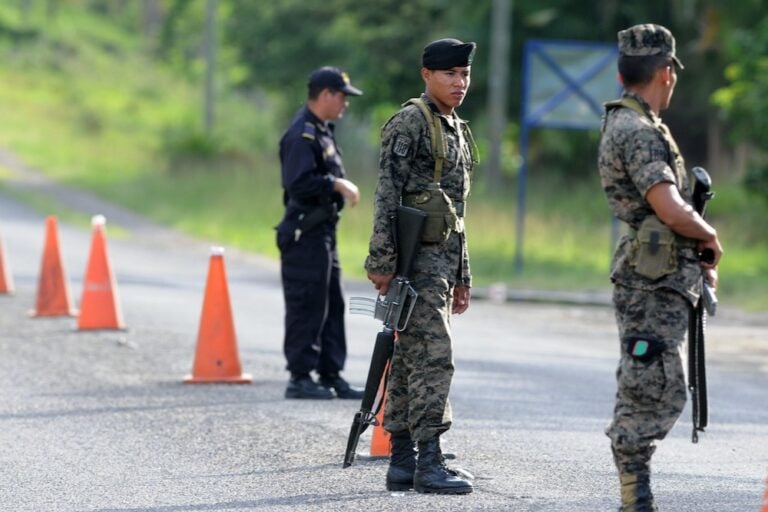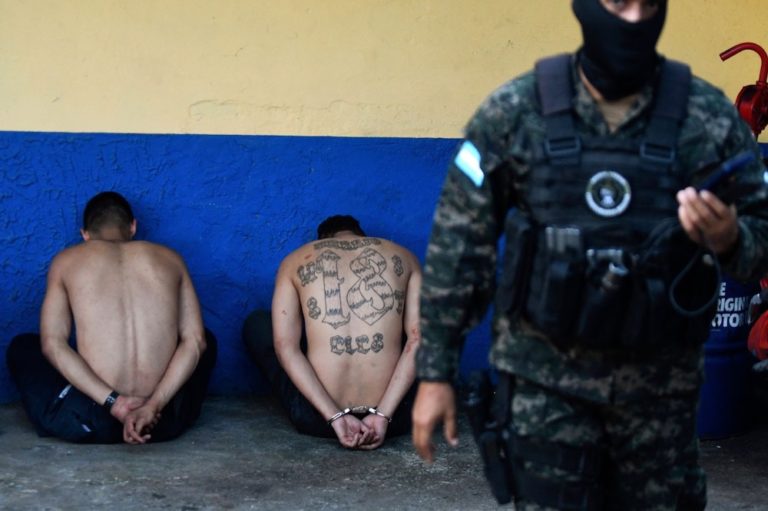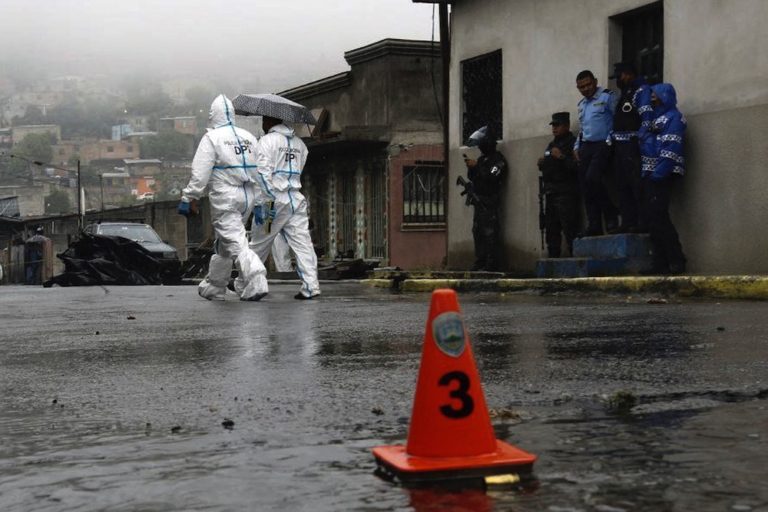(WPFC/IFEX) – The following is a 24 May 2005 WPFC letter to the Honduran Supreme Court: Washington, USA, May 24, 2004 Their Excellencies: Sonia Marlina Dubón Suyapa Thumann Carlos Armando Flores Carlos Gómez Moreno José Rolando Arriaga Sala de lo Constitucional Corte Suprema de Justicia Tegucigalpa, Honduras C/C to Her Excellency Vilma Cecila Morales President […]
(WPFC/IFEX) – The following is a 24 May 2005 WPFC letter to the Honduran Supreme Court:
Washington, USA, May 24, 2004
Their Excellencies:
Sonia Marlina Dubón
Suyapa Thumann
Carlos Armando Flores
Carlos Gómez Moreno
José Rolando Arriaga
Sala de lo Constitucional
Corte Suprema de Justicia
Tegucigalpa, Honduras
C/C to Her Excellency Vilma Cecila Morales
President of the judicial Power
Your Excellencies:
On behalf of the World Press Freedom Committee (www.wpfc.org), an organization comprising 45 press freedom groups from throughout the world, I wish to congratulate you for your courageous decision to eliminate Honduras’s insult law, Article 345 of the Criminal Code, thus taking a decisive step toward a truly free press in your country.
Your exemplary decision culminates a long process initiated in October of 2003, when then Attorney General Roy Medina submitted a motion of unconstitutionality alleging Article 345 was contradictory to Articles 60 and 72 of the country’s Constitution.
Your May 19 decision agreed with such a motion and correctly states the following: “The tendency among modern democracies is to eliminate insult laws, because they consider them contrary to the right of equality before the law and an obstacle to freedom of expression by granting special treatment to public officials.”
In fact, insult laws constitute an effective intimidating, repressive weapon against the free flow of ideas and expressions. These statutes are holdovers from colonial or autocratic eras, whose origins date back to the Roman Empire, which created them in order to shield the emperor from criticism from the rest of the public.
Insult laws constitute a challenge to the Inter-American justice system, which, through the Inter-American Commission on Human Rights and the Special Rapporteur for Freedom of Expression, has declared insult laws “contradictory” to Article 13 of the American Convention on Human Rights, of which Honduras is a signatory. Since the commission issued its recommendation in 1994, only five Latin American countries have eliminated them: Argentina, Paraguay, Costa Rica, Peru, and now, happily, Honduras.
I also wish to extend my congratulations to Comité por la Libre Expresión (C-Libre), a civil society organization that has distinguished itself as a tireless fighter for press freedom and the elimination of Honduras’s insult law.
Justice Sonia Marlina Dubón, the judge who wrote the decision, told C-Libre that “We have taken a great step toward freedom of expression, and our insult law is already history. We have removed ourselves from that black list of countries that resist democratising their systems in a strong and coherent way.”
Your Excellencies, I also would like to take advantage of this opportunity to urge you to consider this elimination of your insult law only as a first step to bringing Honduran legislation up to the highest democratic standards. In Honduras, the laws most often used to repress press freedom are criminal defamation statutes. As long as those laws are still in place, your country’s press will continue to fulfill their duty to keep the public informed under a Damocles sword threatening to punish any journalist with incarceration just because he or she exercised his or her constitutional rights.
That is why we also urge the Legislative Power to submit, as soon as possible, a bill decriminalizing defamation offences and restricting them to the Civil Code. The elimination of your insult law and the future decriminalization of defamation offences would turn Honduras into a leader of democratic nations respectful of a free and independent press.
Respectfully,
E. Markham Bench
Executive Director
World Press Freedom Committee


